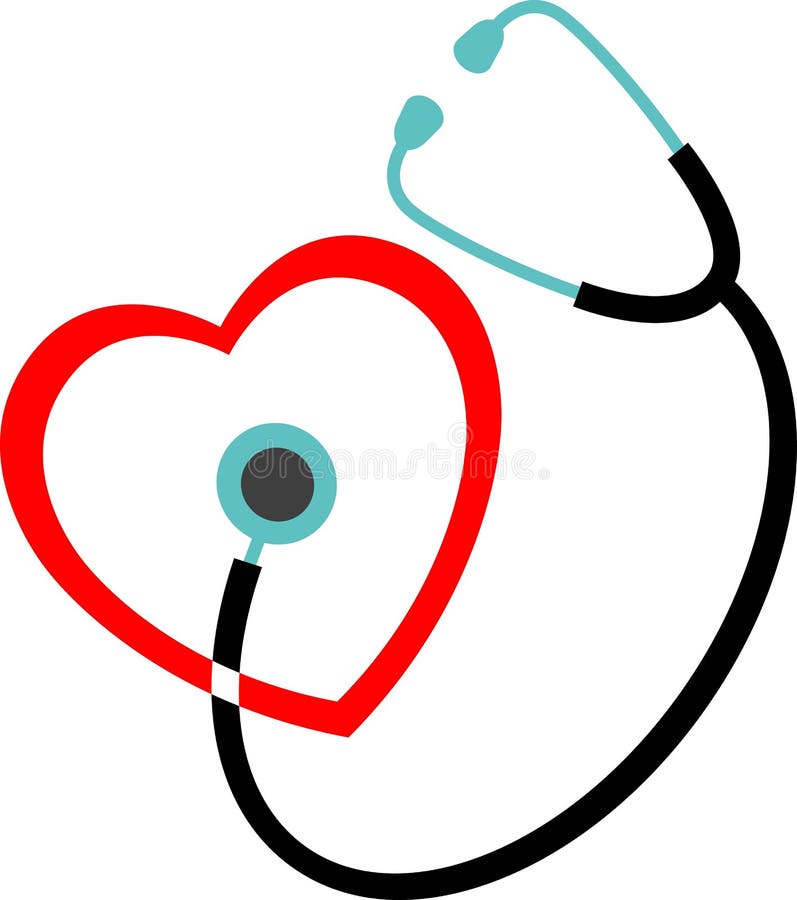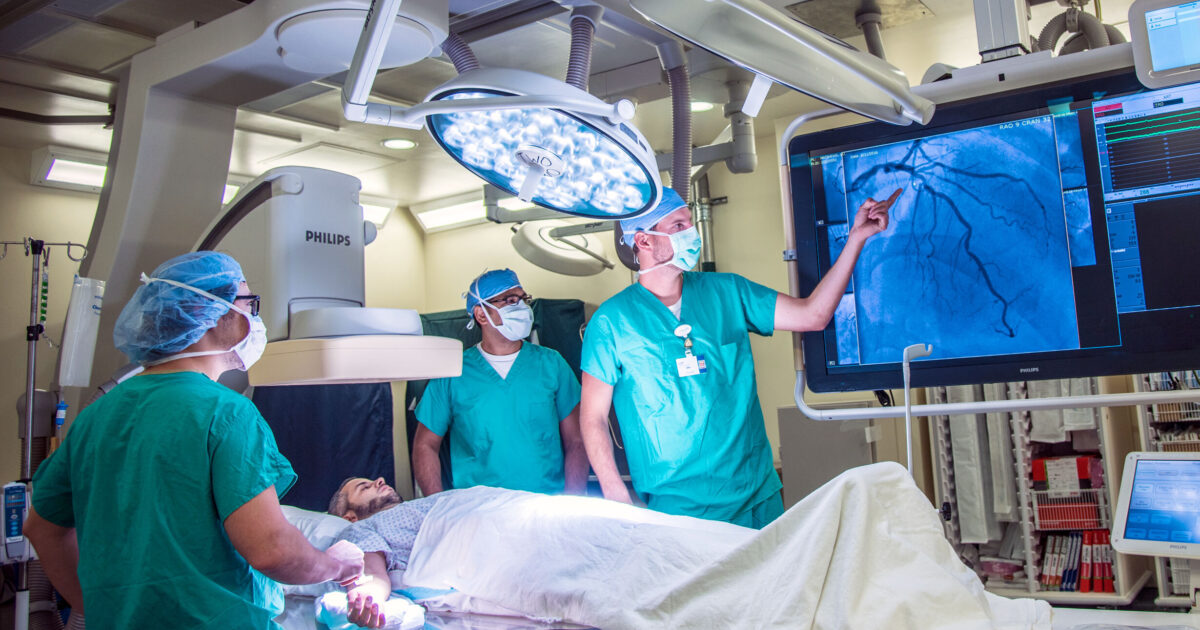Supporting older adults with tailored Cardiology care plans
Supporting older adults with tailored Cardiology care plans
Blog Article
Understanding the Value of Cardiology in Modern Medical Care Services
Cardiology plays a vital role in modern-day health care, specifically as heart problem remains to be the leading root cause of death worldwide. Developments in diagnostics and therapy have actually transformed person care, making it possible for earlier treatments and improved results. Additionally, the shift in the direction of preventative cardiology empowers individuals to handle their wellness proactively. As innovation proceeds to advance, the assimilation of innovative solutions may additionally redefine cardiology's effect on public health, triggering a more detailed assessment of arising patterns and their implications.
The Prevalence of Cardiovascular Disease and Its Effect On Public Health And Wellness
Heart illness stays the leading cause of death around the world, its effect prolongs much past individual people to affect public wellness systems and economies. The high prevalence of heart problem places a substantial pressure on medical care sources, necessitating enhanced funding for rehab, avoidance, and treatment programs. Public health efforts need to address threat factors such as obesity, smoking cigarettes, and inactive way of lives, which contribute considerably to the rising incidence of heart conditions.Moreover, the economic burden related to cardiovascular disease is tremendous, incorporating not just straight clinical prices however also indirect expenditures associated to lost efficiency and premature mortality. Neighborhoods face challenges in managing these prices, commonly leading to variations in healthcare access and results. As the populace ages and lifestyle-related risks remain to intensify, the urgency for reliable cardiology treatments ends up being critical. Consequently, dealing with cardiovascular disease is not just an issue of private wellness yet likewise a critical public health concern.
Developments in Cardiac Diagnostics and Imaging Techniques
Current advancements in heart diagnostics and imaging techniques have actually reinvented the area of cardiology, boosting the capacity to spot and check heart illness. Strategies such as cardiac MRI, CT angiography, and echocardiography have come to be increasingly innovative, providing in-depth photos of cardiac frameworks and features. These techniques enable the early identification of conditions like coronary artery illness, heart failing, and valvular disorders.Moreover, innovations in non-invasive diagnostics, such as wearable innovation and remote tracking devices, have encouraged individuals and health care companies. These devices help with real-time monitoring of heart rhythms and various other important signs, resulting in prompt interventions. In addition, man-made knowledge is being integrated right into imaging evaluation, enhancing accuracy and effectiveness in medical diagnosis.
Technologies in Therapy Alternatives for Heart Conditions
Recent innovations in cardiology have resulted in considerable technologies in therapy options for heart problems. These include sophisticated medical strategies that improve procedural end results and arising medicines that offer new avenues for therapy. As the area progresses, these technologies play an essential duty in enhancing individual treatment and outcomes.
Advanced Surgical Techniques
Advancements in surgical techniques have changed the landscape of cardiology, supplying brand-new wish for individuals with heart disease. Minimally invasive treatments, such as catheter-based treatments, have significantly decreased healing times and health center keeps. Strategies like robotic-assisted surgical treatment enhance precision, allowing doctors to browse complicated physiological structures with greater precision. Additionally, advancements in imaging modern technology assist in real-time visualization throughout treatments, enhancing outcomes. Transcatheter aortic valve replacement (TAVR) exemplifies a breakthrough in treating aortic stenosis, enabling valve substitute without open-heart surgery. In addition, hybrid strategies that incorporate medical and catheter-based techniques supply customized solutions for different heart issues. These advanced medical methods not just boost client safety but also expand therapy options, emphasizing the critical duty of advancement in modern-day cardiology techniques.
Emerging Therapies and medicines
As the landscape of cardiology remains to evolve, emerging therapies and drugs play a pivotal duty in enhancing therapy alternatives for heart disease. Technologies such as novel anticoagulants and progressed lipid-lowering agents have changed the management of heart diseases, considerably reducing individual morbidity and mortality. Additionally, the growth of gene therapies and regenerative medication uses encouraging opportunities for dealing with conditions formerly deemed irreversible. Scientific trials are continually revealing the efficiency of these treatments, pushing the boundaries of traditional therapies. Moreover, the assimilation of electronic health modern technologies helps with personalized medication, enabling for customized treatment plans based on hereditary and lifestyle factors. Jointly, these innovations emphasize the vibrant nature of cardiology, improving individual results and redefining standards of care in modern health care.
The Function of Preventive Cardiology in Client Care
Preventive cardiology plays a crucial function in person care by concentrating on the identification of threat elements that add to heart problem. Through way of living alteration approaches and very early discovery methods, doctor can effectively lower the occurrence of cardio events - Cardiology. This aggressive strategy not just enhances patient end results but also advertises long-lasting health
Threat Aspect Recognition
While heart diseases stay a leading reason for morbidity and death worldwide, effective risk variable identification functions as a foundation of preventative cardiology. Identifying threat factors such as hypertension, household, hyperlipidemia, and diabetes history is vital for early treatment. Healthcare experts use numerous evaluating techniques to evaluate these aspects, enabling customized preventative steps. In addition, comprehending a person's lifestyle options, such as smoking cigarettes and physical inactivity, additionally educates danger analyses. This thorough evaluation enables clinicians to establish individualized care strategies intended at mitigating threats. By focusing on danger factor identification, healthcare systems can boost patient end results and minimize the overall problem of heart diseases, ultimately adding to improved public health and wellness approaches and source allocation.
Lifestyle Alteration Methods
A multitude of research studies highlights the crucial Our site duty of way of living alteration methods in reducing heart disease danger. These approaches encompass nutritional changes, raised exercise, smoking cigarettes cessation, and weight management. By embracing a heart-healthy diet regimen abundant in fruits, vegetables, whole grains, and lean proteins, he said individuals can lower cholesterol degrees and blood stress. Routine exercise enhances the heart and improves general cardiovascular wellness. In addition, giving up cigarette smoking greatly decreases the danger of cardiovascular disease and improves recuperation prices for those with current conditions. Weight monitoring further adds to cardio wellness by alleviating other danger factors such as diabetes mellitus and hypertension. Executing these lifestyle alters not only promotes individual wellness but additionally functions as a foundation of preventative cardiology in individual treatment.
Very Early Discovery Strategies
Way of life modifications significantly add to decreasing cardiovascular illness risks, however they are most efficient when coupled with early discovery methods. Preventive cardiology stresses the significance of determining prospective heart concerns prior to they escalate right into serious conditions. Strategies such as high blood pressure monitoring, cholesterol screening, and advanced imaging modern technologies like echocardiograms play vital roles in reviewing cardiovascular health and wellness. Biomarkers and hereditary testing additionally boost the accuracy of early discovery, enabling for customized preventative methods. Regular heart risk analyses equip doctor to step in proactively, possibly stopping heart strikes and strokes (Cardiology). By integrating these early detection approaches right into regular treatment, individuals can gain from timely lifestyle treatments and targeted therapies, inevitably improving outcomes and enhancing lifestyle
Integrating Technology Into Cardiology Practices
As innovations in technology proceed to improve various areas, the combination of innovative devices and systems right into cardiology practices has actually ended up being important for improving client treatment and results. Telemedicine platforms permit cardiologists to keep an eye on clients remotely, improving accessibility to care while decreasing the problem on medical care centers. Wearable gadgets, such as smartwatches, allow constant heart rate tracking, signaling both physicians and people to potential concerns in real-time. Additionally, fabricated intelligence (AI) is being used to examine vast quantities of cardiac data, assisting in early diagnosis and personalized therapy strategies. Advanced imaging techniques, consisting of 3D echocardiography, enhance visualization of heart frameworks, resulting in extra exact treatments. Electronic wellness documents (EHRs) improve individual information management, making certain that cardiologists have prompt access to important information. Together, these technological improvements are changing cardiology, promoting positive management and enhanced health outcomes for individuals with cardiovascular conditions.
The Relevance of Patient Education and Involvement
Individual education and learning and engagement play an essential role in the administration of cardiovascular wellness. By equipping individuals with knowledge regarding their problems, therapy choices, and way of life adjustments, doctor empower people to take an active function in their treatment. This proactive technique can cause enhanced adherence to recommended medications, nutritional adjustments, and workout programs, ultimately reducing the threat of complications.Engagement also cultivates a strong patient-provider partnership, encouraging open communication and count on. check my source When people really feel educated and included, they are most likely to voice worries and ask concerns, which can lead to better medical outcomes. In addition, academic sources, such as workshops or digital systems, can enhance understanding and advertise self-management approaches. On the whole, focusing on individual education and learning and involvement is important for improving cardiovascular wellness, enhancing quality of life, and reducing health care prices connected with heart diseases.
Future Patterns in Cardiology and Their Potential Impact

Regularly Asked Concerns
What Lifestyle Changes Can Reduce Heart Disease Threat?
The existing question addresses way of life adjustments that can significantly lower cardiovascular disease threat. Cardiology care. Adopting a well balanced diet plan, taking part in normal exercise, preserving a healthy weight, managing stress, and staying clear of cigarette can especially boost cardio wellness
Exactly How Can I Acknowledge Early Indicators of Heart Issues?
Acknowledging very early indications of heart problems involves surveillance signs and symptoms such as upper body pain, shortness of breath, fatigue, and uneven heart beat. Prompt awareness of these indicators can trigger essential medical assessment and treatment for far better end results.
What Are the Differences In Between Cardiologists and Heart Surgeons?
The distinctions in between cardiologists and cardiac doctors lie in their roles; cardiologists mostly diagnose and handle heart problems through non-invasive techniques, while cardiac specialists perform procedures to correct structural heart problems. Each plays a vital, distinctive role.

Exactly how Commonly Should I Obtain My Heart Health And Wellness Checked?
The regularity of heart checkup varies based on private danger elements. Normally, grownups should undergo assessments every one to two years, while those with existing conditions may call for more constant analyses as encouraged by health care experts.
What Role Does Genes Play in Heart Illness Danger?
Genetics greatly affects cardiovascular disease danger, with familial patterns showing inherited problems. Certain genes can incline people to high blood pressure, cholesterol problems, and other cardiovascular troubles, highlighting the value of genetic screening in reviewing heart health and wellness. Heart disease continues to be the leading reason of death globally, its influence prolongs far past private patients to affect public health and wellness systems and economies. Public wellness initiatives need to address danger factors such as excessive weight, smoking cigarettes, and sedentary way of livings, which contribute considerably to the climbing incidence of heart conditions.Moreover, the financial worry connected with heart condition is immense, incorporating not only straight clinical costs however additionally indirect costs associated to lost performance and premature death. Preventive cardiology plays a crucial role in person treatment by focusing on the recognition of risk variables that contribute to heart disease. Man-made intelligence (AI) and machine discovering are improving diagnostics and person surveillance, enabling early discovery of heart conditions. The differences in between cardiologists and cardiac specialists lie in their roles; cardiologists largely take care of and identify heart conditions through non-invasive methods, while cardiac doctors do surgical treatments to deal with architectural heart concerns.
Report this page